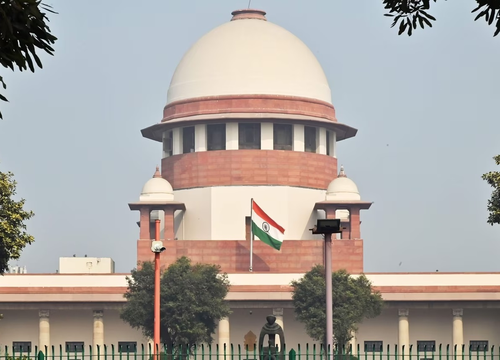New Delhi: The Supreme Court has extended the benefits of the 6th Central Pay Commission, including the pensionary benefits, to several employees of the Compulsory Saving Scheme Deposits (SSD) Fund of the Special Frontier Force.
A bench of Justices Hima Kohli and Sandeep Mehta said that the denial of pensionary benefits to the appellants was not tenable or justifiable in the eyes of the law as it is arbitrary and violated the fundamental rights as guaranteed by Articles 14 and 16 of the Constitution of India.
In 2017, the Delhi High Court had upheld the decision of the Central Administrative Tribunal rejecting the appellants’ claim for benefits of the replacement scales of the Revised Pay Rules, 2008 in terms of the 6th Pay Commission Report.
The appellants were appointed to manage the paramilitary force’s Compulsory Saving Scheme Deposits Fund, a welfare initiative funded through the personal contributions of the troopers, in various positions such as Junior Accountant, Accountant, Upper Division Clerk (UDC), and Lower Division Clerk (LDC), on running pay scales.
However, the benefits of the 6th Central Pay Commission were not extended to them and instead, an ad-hoc amount of Rs 3,000 per month was given. They were denied pensionary benefits on the ground that the appellants were not government employees and had not been appointed by following any recruitment rules, and therefore, the Central Civil Services (Pension) Rules, 1972 would not apply to them.
In their plea filed before the apex court, the appellants argued that they satisfied all the characteristics of regular government servants, considering the fact that they were appointed on a regular pay scale and received increments and promotions at par with those being admitted to other government employees, along with leave and other benefits and emoluments.
On the other hand, Additional Solicitor General K.M. Nataraj contended that the appellants were hired on a temporary basis to manage the SSD Fund, which is generated from the difference between the interest earned on the invested amount and the annual interest paid to subscribers.
After applying the tests laid down for determining whether an entity is an instrumentality or agency of the state, the Supreme Court “found compelling evidence on record which establishes that the appellants meet the characteristics of regular government servants”.
“Admittedly, the appellants were appointed on a regular pay scale. This factor strongly indicates a formalised employee-employer relationship akin to permanent government employees,” it said, adding that the appellants “received increments and promotions comparable to those of other government employees” during the course of their service.
The apex court said that the long-term service of appellants spanning over three decades suggested a level of permanence and integration into the governmental structure that belies their classification as temporary employees.
“The essence of employment and the rights thereof cannot be merely determined by the initial terms of appointment when the actual course of employment has evolved significantly over time,” it reiterated. It said that the denial of pensionary benefits solely on the basis of their temporary status appears to be an oversimplification of the appellant’s employment relationship with the government.
“The respondents (authorities) are directed to extend the benefits of the 6th Central Pay Commission including the pensionary benefits under the Revised Pay Scale Rules, 2008 to the appellants herein in the same terms as are being afforded to their peers,” the apex court ordered.
–IANS


Comments are closed.